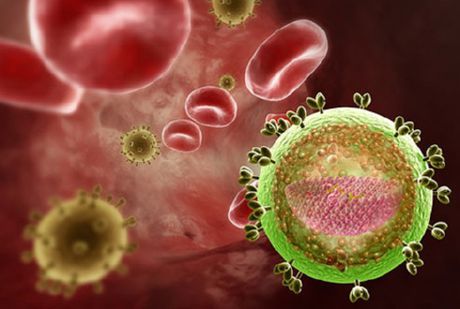HIV and AIDS: fictions and reality
Last reviewed: 23.04.2024

All iLive content is medically reviewed or fact checked to ensure as much factual accuracy as possible.
We have strict sourcing guidelines and only link to reputable media sites, academic research institutions and, whenever possible, medically peer reviewed studies. Note that the numbers in parentheses ([1], [2], etc.) are clickable links to these studies.
If you feel that any of our content is inaccurate, out-of-date, or otherwise questionable, please select it and press Ctrl + Enter.
For a long time, the problem of acquired immunodeficiency syndrome for society was a closed topic, but when the veil of secrecy was asleep, the mystery turned out to be even greater, due to prejudice and lack of information.
HIV = AIDS

The human immunodeficiency virus is a virus that destroys immune cells of CD4, helping to fight infections and diseases. If a person with HIV is prescribed the right treatment, then he can live a long time before HIV provokes AIDS. AIDS is a complex of diseases that appear against the background of weakened immunity, at the last stage of the disease.
Infection through household contacts
HIV infection is not transmitted through hugs, using the same dishes or towels. There is a risk of infection through a blood transfusion, odako before the procedure, donor blood is carefully checked. HIV is also transmitted through injecting equipment, sharing syringes, unprotected sex, or non-sterile equipment for tattoos.
Life is not long
For each patient, the course of HIV infection is absolutely individual. Some people develop AIDS within a few months, others may live for many years and the infection will not be affected in any way. Regular visits to the doctor and following all his recommendations and instructions will help prevent the development of AIDS.
Symptoms of HIV = 100% infection
In some people, from the moment of infection to the appearance of the first symptoms, it can take from 10 days to several weeks, and some live with the infection and do not even suspect it, without observing any signs. The only way to know if there is HIV in the body is for sure - to be screened and tested for HIV.
HIV is being treated
Unfortunately, scientists are working on the creation of a vaccine, but to date there is no such medicine that could eradicate HIV infection. However, there is a therapy that can slow down the activity of the virus and help the defenses of the body function normally. Some drugs affect the proteins necessary for the virus and restrain its reproduction, while others interfere with the introduction of the genetic material of the virus into the cells of the immune system.
Everyone can get infected
It's true, all people are at risk of infection, this is not affected by age, gender, or sexual orientation.
If both are infected, then sex is safe
Even if both partners are infected, this does not mean that you do not need to be protected. Condoms will be able to protect against other STDs and HIV-resistant strains of drugs.
HIV-positive woman can give birth
Infected women can transmit HIV during pregnancy or childbirth, but you can still reduce this risk by going through the necessary treatment.
HIV-associated infections
A weakened immune system becomes a target for infections, for example, tuerculosis, pneumocystis pneumonia, toxoplasmosis, candidiasis and cytomegalovirus. Taking prescribed medications can reduce the risk of contracting other infectious diseases. It is also better to take care and not eat half-baked, undercooked meat or contaminated water.


 [
[